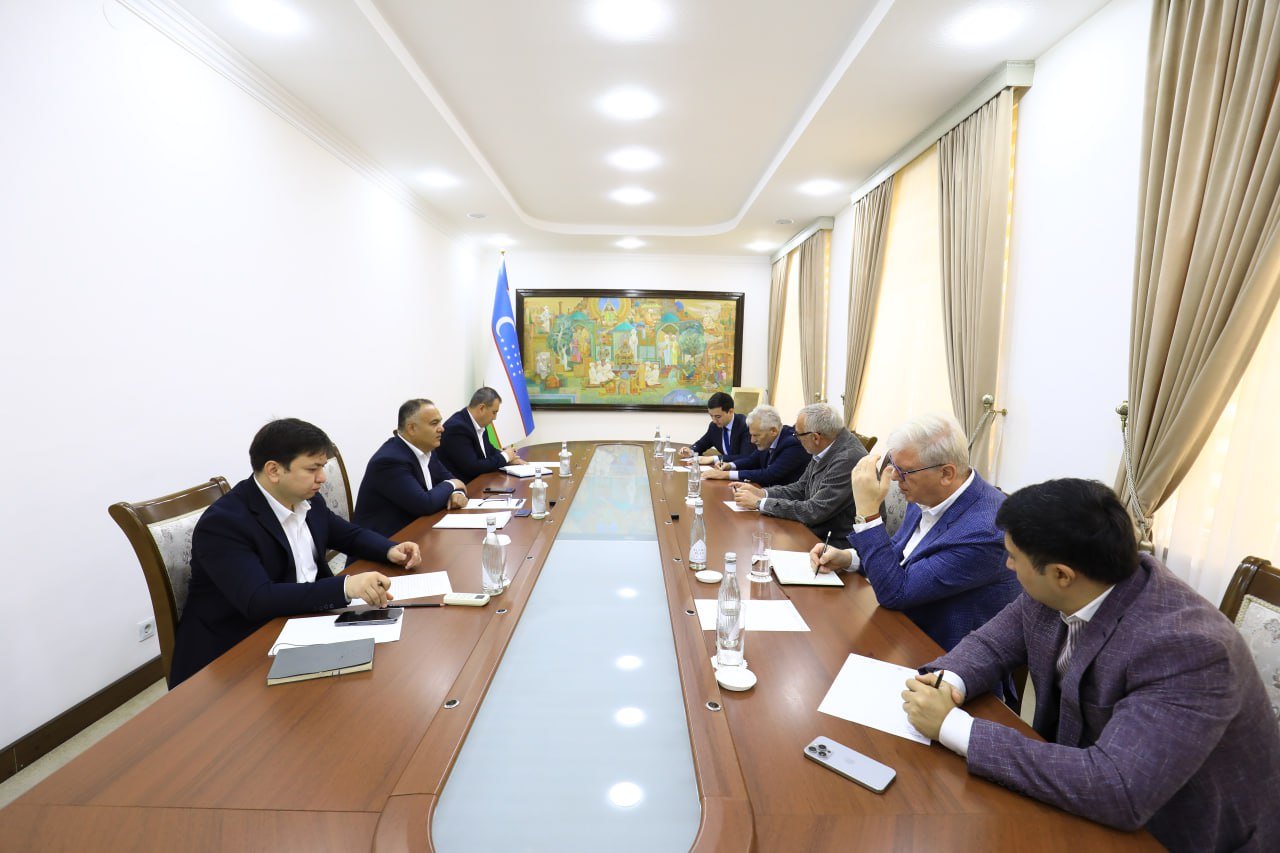Members of the International Advisory Council (IAC) – Alfred Gusenbauer, Aleksander Kwaśniewski, and Štefan Füle visited several regions of Uzbekistan to gain deeper insight into the country’s rapidly developing tourism potential.
Their visit began in Samarkand, where the delegation toured major historical and cultural landmarks, explored local attractions, and reviewed the state of tourism infrastructure and services.
During a meeting with the Acting Governor of Samarkand Region, Adiz Boboyev, the guests were briefed on current efforts to develop tourism and on ambitious plans. It is expected that by the end of this year, Samarkand will host around 3 million foreign tourists and over 5 million domestic tourists.
The Council members praised Samarkand’s rich cultural heritage, spirit of tolerance, and strong global appeal.
“Each landmark in Samarkand tells a story. Located at the heart of the Great Silk Road, the city has long been a meeting point for vibrant cultures, where people of diverse backgrounds have lived together in peace. This legacy is particularly relevant today. Visitors return to Samarkand not only for its history but also for the warmth and sincerity of its people. By leveraging this potential, the region can further advance its tourism sector,” said former Austrian Federal Chancellor Alfred Gusenbauer.
The discussions also covered the development of congress and business tourism in Samarkand, drawing on Vienna’s successful experience.
The Council members expressed readiness to provide expert recommendations and assist in promoting Samarkand’s tourism potential through joint cultural initiatives and international exhibitions.
Adiz Boboyev emphasized that European experience is valuable not only in tourism but also in other economic sectors, highlighting opportunities
for cooperation in science, IT, and industry. Both sides confirmed their commitment to strengthening future collaboration.
The delegation then visited Bukhara, where they met with Regional Governor Botir Zaripov. The guests were briefed on the region’s recent socio-economic reforms and the positive outcomes of nationwide transformations under
the leadership of President Shavkat Mirziyoyev. These reforms have focused on economic liberalization, investment attraction, private sector support, and innovation development.
The sides discussed expanding cooperation with European partners
in sustainable regional development, including the attraction of European investors to pharmaceutical and electrical engineering projects in Bukhara.
The Council members highly praised Uzbekistan’s tourism and investment potential, as well as the prospects for its continued growth. They also exchanged views on broader areas of economic cooperation.
During their stay, the delegation visited Bukhara’s historical and cultural landmarks. It was noted that by the end of the year, Bukhara expects to receive around 2.5 million foreign and 3.5 million domestic tourists.
Former President of Poland Aleksander Kwaśniewski highlighted the city’s unique artisanal traditions, hospitality, and strong potential for tourism and investment projects, noting that Bukhara remains one of the most authentic and inspiring destinations in Central Asia.
The final leg of the visit took place in the Khorezm region, where the delegation met with Governor Jurabek Rakhimov. The discussions focused on expanding cooperation with European Union countries and increasing the region’s participation in international trade and tourism.
It was highlighted that Khorezm’s trade turnover with the EU has quadrupled over the past five years – rising from $20 million to $80 million. The region now hosts over 200 enterprises with foreign investment, including 47 in partnership with European companies.
New tourist facilities are being developed across Khorezm, and the number of visitors continues to grow steadily. The sides also discussed improvements in transport infrastructure to enhance travel convenience and accessibility.
The delegation was presented with an overview of the region’s diversified economy, including key industries such as automotive manufacturing, light industry, agriculture, and tourism. Promising areas for cooperation were identified in textiles, pharmaceuticals, food processing and eco-tourism.
The Council members toured the Ichan-Qala historical complex and the Arda Khiva tourist center, where they reviewed ongoing development projects and visitor facilities.
At the conclusion of their visit, the members of the International Advisory Council – Alfred Gusenbauer, Aleksander Kwaśniewski, and Štefan Füle reaffirmed their commitment to supporting the global promotion of Uzbekistan’s tourism brand, particularly in the European market.
They proposed several practical initiatives, including:
Promoting Uzbek cuisine through international cultural events;
Increasing the number of direct flights between Uzbekistan and major European cities;
Organizing joint exhibitions and festivals to showcase the country’s cultural and tourism potential.






